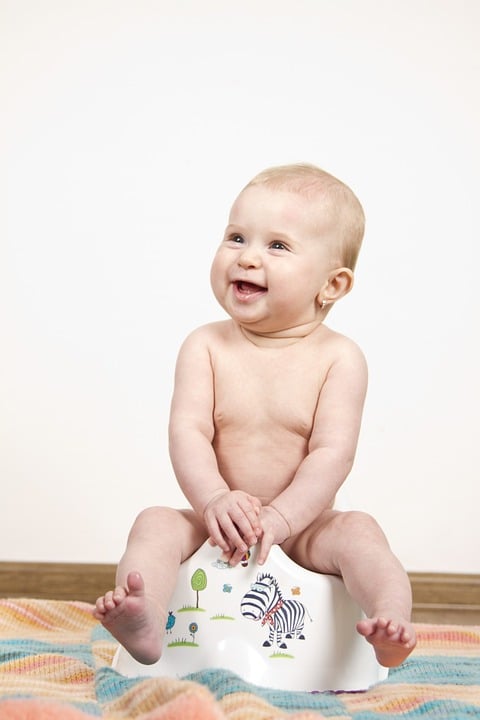Beginning Potty Training Practices in the Early Childhood Classroom
 Potty training is a significant milestone in a young child’s #development and an essential part of #early-childhood-education. While every child’s readiness varies, implementing effective potty training practices in the #classroom can foster independence, build confidence, and create a positive experience for children and families alike. Here, we outline best practices for starting potty training in the classroom, complete with tips and resources for #educators.
Potty training is a significant milestone in a young child’s #development and an essential part of #early-childhood-education. While every child’s readiness varies, implementing effective potty training practices in the #classroom can foster independence, build confidence, and create a positive experience for children and families alike. Here, we outline best practices for starting potty training in the classroom, complete with tips and resources for #educators.
Why Potty Training is Important in Early Childhood Settings
Potty training teaches children essential life skills, including:
- Self-regulation: Learning to recognize bodily cues.
- Independence: Gaining confidence in managing personal needs.
- Hygiene habits: Building #healthy routines for cleanliness.
Early childhood educators #play a vital role in supporting children and families during this transition. By providing a consistent and encouraging environment, educators can make the process smoother for everyone involved.
Best Practices for Potty Training in the Classroom
Below are strategies to create a positive and effective potty training experience:
1. Assessing Readiness
Before beginning potty training, it’s important to assess each child’s readiness. Signs of readiness include:
- Staying dry for longer periods.
- Showing interest in using the toilet.
- Expressing discomfort with wet or soiled diapers.
- Communicating the need to use the bathroom.
2. Partnering with Families
Open communication with families ensures consistency between #home and school. Tips for effective collaboration include:
- Developing a plan: Work with #parents to create a potty training schedule.
- Sharing updates: Provide daily reports on progress.
3. Creating a Supportive Environment
The #classroom-environment-should encourage children to feel comfortable and confident. Consider the following:
- Accessible restrooms: Ensure bathrooms are easy to reach and child-friendly.
- Visual reminders: Use posters or schedules to remind children of bathroom breaks.
- Positive reinforcement: Celebrate small successes with praise or stickers.
Training Opportunity: Learn more about fostering independence with the Supporting Children's Independence training.
4. Maintaining Hygiene and Safety
Hygiene is crucial during potty training to prevent the spread of germs. Educators should:
- Teach proper handwashing techniques.
- Use gloves and disinfect surfaces after accidents.
- Encourage children to flush and clean up after themselves.
ChildCareEd offers insights into maintaining classroom hygiene in their Health and Nutrition training.
5. Encouraging Patience and Positivity
Potty training takes time, and setbacks are normal. Keep the process positive by:
- Avoiding punishment for accidents.
- Encouraging children to try again.
- Offering gentle reminders instead of pressure.
Helpful Resources and Inspiration
Looking for more guidance? Explore the following resources:
- Article: Read ChildCareEd’s detailed post on Cross-Cultural Toilet Training Practices.
- Pinterest Ideas: Check out tips and tools on ChildCareEd’s Pinterest page.
- Social Media Inspiration: Watch quick tips and success stories on ChildCareEd’s TikTok channel.
FAQs About Classroom Potty Training
Here are answers to some common questions about potty training in #early-childhood settings:
- What if a child is resistant?
- Offer encouragement without forcing participation. Sometimes, taking a break and revisiting later can help.
- How do I handle accidents?
- Stay calm and reassure the child. Clean up quickly and discreetly to avoid embarrassment.
- Should we use rewards?
- Small incentives like stickers or verbal praise can motivate children, but avoid creating dependency on rewards.
Conclusion
Potty training in the classroom is a collaborative effort that requires patience, planning, and positivity. By fostering an encouraging environment and partnering with families, educators can help children achieve this important #developmental milestone.
For more training and resources, visit ChildCareEd or CDA Certification. Stay inspired by following ChildCareEd on Instagram or Facebook. Together, we can make potty training a rewarding journey for children and educators alike!
- Exploring CDA Career Options: Pathways to Growth and Opportunity
- Child Development and the Role of the CDA
- How Earning the CDA Credential Helps Educators Set Up Appropriate Classroom Environments
- Beginning Potty Training Practices in the Early Childhood Classroom
- Set Yourself Up for Success in Earning Your CDA
- Minnesota CDA Certification — What You Need to Know
- CDA Courses ChildCareEd Provides for Providers in Oklahoma
- CDA Online Trainings in Oklahoma: A Complete Guide for Early Childhood Educators